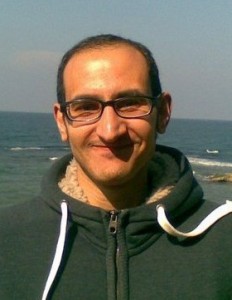
“Giant breasts full of milk… I want clouds, damn it!”
During a memorable scene from Martin Scorsese’s Howard Hughes biopic The Aviator, Hughes, played by Leonardo Di Caprio, asks Professor Fitz, a meteorologist he has hired during the making of his film, Hell’s Angels, when clouds looking like “giant breasts full of milk” will appear in the sky.
Hughes, who was evidently a big fan of breasts (he designed a special underwire push-up bra for femme fatale Jane Russell during the making of The Outlaw in order to emphasise her bosom on screen), was especially adamant to capture such clouds on camera, with an airplane flying across the sky as the giant breast-like, milk-filled cloud formation appears on the screen.
As a result, filming gets delayed for months (“Yes, clouds that look like giant breasts full of milk, [Mr Hughes], cannot exactly be guaranteed for any particular occasion. So you might have to… to wait”), but the clouds eventually appear and all goes well.
Anyway, I digress.
Not to be outdone by reclusive Texas billionaires, Egyptian Prime Minister Hesham Qandil perhaps betrayed some of his own obsessions during a televised cabinet meeting, Wednesday, when he attributed a recent outbreak of diarrhoea among babies in Egypt’s rural regions to a somewhat unexpected phenomenon. As it turns out, this outbreak is not primarily the result of a lack of clean drinking water or adequate sanitation in these areas, nor is it the result of the crippling poverty or the systematic neglect these people have suffered at the hands of successive Egyptian governments over the last decades (including, evidently, this one). No… The answer according to Mr Qandil: Dirty breasts.
Yes, giant dirty diarrhoea-inducing breasts full of milk.
“If you want to talk about the troubles the Egyptian people face, I can say much about this… As part of my work, I have been to many of Egypt’s rural areas, and I have seen in the villages of Beni Suef… children being struck down with diarrhoea—the baby, the baby [Qandil gestures frantically with his hands as if holding a baby], the suckling infant!—because of the ignorance of the villager women, who do not clean their breasts before feeding their babies.”
Now, this is a man who clearly has his priorities in order. And I am in no way making light of the outbreak, I just find it curious that in the midst of this country’s worst period of violence since the 25 January Revolution, our prime minister chose to devote a considerable portion of a televised cabinet meeting to diarrhoea and dirty breasts.
Even more curious, perhaps, is that it is Qandil talking about this, rather than, say, the health minister.
Curioser still: He chose to focus on the village women when attributing the cause of the outbreak, only mentioning the lack of sanitation and clean water at these villages as a mere aside.
But perhaps this is not so curious after all… for, you see, this is all just simply a case of Qandil sipping the breastmilk kool-aid.
After the Port Said football massacre in February 2012, then Chairman of the Supreme Council of the Armed Forces (or the delightfully-acronymed SCAF) Field Marshall Mohamed Hussein Tantawi, implored the Egyptian people to take hold of this tragic situation: “Where are the Egyptian people? Why don’t they go out and find these people [responsible for the massacre].” He seemed flustered as he spoke these words, almost frustrated with these damned lazy Egyptians who just can’t get off their backsides and hunt those bastards down. It’s not his job, after all.
More recently, during his now-infamous finger-wagging speech (“I will take drastic measures, drastic measures, I’m warning you”), the man from NASA castigated protesters for causing destruction of public property (read: Brotherhood offices) and chaos and the like, simultaneously praising the police and security forces (who, as we saw in the case of Hamada Saber, have acted with admirable restraint throughout this whole mess). The message was clear: You (yes, he means you), the people—not the police, not the interior ministry, not those in power—are the ones to blame for all this trouble.
So, that Qandil chose to attribute the outbreak to the villager women’s poor levels of hygiene and education before attributing it to the causes of both of these (which are his and his government’s. responsibility, and not the villagers’), is, perhaps, not so unusual at all.
It is just an example of a general trend witnessed among those with even so much as a modicum of power in this country: Blame the people first; those in power later (or never at all; these people quickly forget).
But as President Morsi himself reminded us during his recent visit to Germany, “with great power comes great responsibility” (yes, he actually said this—first Planet of the Apes, now Spider-Man).
It’s a hackneyed phrase now, and those Spider-Man films certainly have a lot to answer for, but given the prime minister and the president’s well-publicised piety, it is perhaps something they can think about together the next time they meet for movie night.



